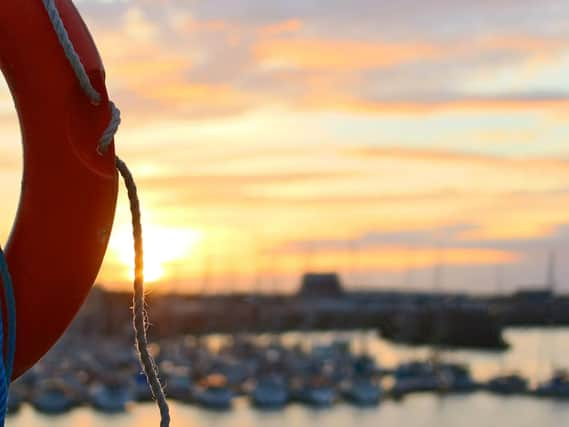Northamptonshire Fire and Rescue issue water safety warning after tragic drowning


At least nine people drowned across the UK in June, many in their teens or early 20s, and Warwickshire Police recovered the body of a 17-year-old from the Blue Lagoon area in Bishops Itchington last week.
Families are being urged by NFRS to talk about water safety with children and young people now the school holidays are underway.
Advertisement
Hide AdAdvertisement
Hide AdTina Collett, of the prevention and community protection department at NFRS, said: "While we hope everyone has a fun summer and enjoys the good weather, it’s sadly all too easy for a quick dip to turn into a tragedy.
"Even when it’s hot, water temperatures remain low enough to cause you serious problems, or there could be underwater hazards or strong currents.
"Getting into difficulties where there’s no help available can be fatal, which is why we’re asking parents and carers to talk to children and young people to make sure they understand they should only swim at sites designated for swimming, where there are lifeguards to help keep them safe."
Crews from NFRS fire stations across the county regularly visit schools and colleges to provide safety advice to young people, including water safety messages.
Advertisement
Hide AdAdvertisement
Hide AdDuring the warmer months, firefighters also visit open water sites offering water safety advice and reminding people the safest place to swim is in a proper facility with lifeguards.
Tina said: “These visits are about interacting with children and young people to make sure they understand the dangers of entering the water. It’s easy to get carried away when playing with friends so we’re aiming to provide a friendly reminder to stay safely on dry land.”
The NFRS has issued the following advice:
What to do if someone is in difficulty in water
Dial 999 – ask for the fire service if you are inland, or the coastguard if you’re at the beach. Shout for help, and talk to the person to offer reassurance, but don’t go into the water yourself – you risk becoming a casualty too
Without endangering yourself, see if you can reach out to the person with a branch, pole or item of clothing – lie down on the bank to keep yourself secure
Advertisement
Hide AdAdvertisement
Hide AdAlternatively, throw them something that will float, like a life buoy, empty and capped drinks bottle or a ball
Keep looking at and talking to them – ask them to look at you, or see if they can swim or propel themselves to safety
What to do if you fall in
The shock of cold water can make swimming difficult and make it harder to get out. Average UK water temperatures are between 10-15°C, even in summer. This is chilly enough to cause cold water shock, making you gasp uncontrollably and breathe in water, which can quickly lead to drowning. If you fall into water, the RNLI has this advice:
Try to remain calm and fight the natural instinct to swim until the risk of cold water shock passes - this is usually at least 90 seconds
Spread your arms and legs and float on your back until you can control your breathing
Only when your breathing is under control should you shout for help or swim to safety